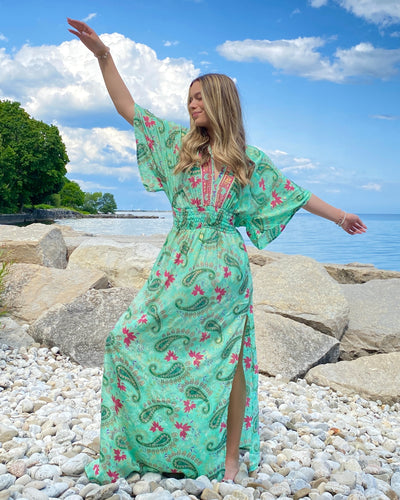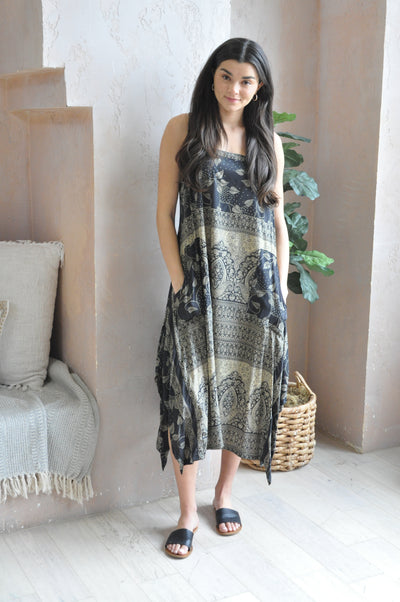What is sustainable fashion?
By definition the word sustainable means "being a method of harvesting or using a resource so that the resource is not depleted or permanently damaged" - Merriam-Webster dictionary. Sustainable is different from biodegradable and the two words seem to be pooled into the same camp.
Much like the word organic has been tampered with by marketing departments around the world, sustainable has become the new buzz word for many brands, leading their organizations to go to great lengths to convince shoppers that their products are eco friendly, which they may in fact not be or can partially be. This very new method of sales manipulation is referred to as greenwashing.
Greenwashing has become a tactic, that appears to be working, whereby customers feel the brand is doing their part by using recycled materials, or textiles that biodegrade. Although some organizations are legitimately trying others are using this smoke and mirrors technique to appear as environmental do-gooders.
Let me illustrate a perfect example of greenwashing. A popular shoes and accessories company reveals a new product that is "designed with planet-loving materials". It goes on to describe the eco-friendly contents of the product, but does not say how much is in the product. Leading the customer to believe that the entire product is made of sustainable textiles. The reality is that only a very small portion of the product was made with sustainable fibres.
So what is sustainable? Regenerative textiles like bamboo are sustainable because they grow at a reported rate of 35 inches every day, making it extremely sustainable. Other regenerative textiles to look for include Tencel and Lyocell which are both made of dissolving wood pulp.
Up-cycled textiles - What we do best! For 20 years Guru has been diverting textiles away from the landfills while offering women options for unique contemporary fashion. This practice is also sustainable because the supply is abundant and would not be depleted. Naturally we are a fan of up-cycling and encourage it as a whole.
Leather can also be sustainable. If the skin of an animal from the food consumption industry would otherwise be sent to landfills and the supply is abundant and not depleted, then it would be sustainable.
Every small step makes a difference and we encourage any attempt to spare our environment, but please consider that recycled textiles and production of Bamboo, Tencel or Lyocell will all use a lot of energy, and clean water as part of their production process.
Businesses know that the demand for sustainability is growing and they want in! In order to continue to line their pockets, many brands continue to mostly adhere to the same production standards they have always favored. Only now they are practicing the "greenwashing" approach, promoting their products as if they are environmentally friendly, but they only relay a portion of the story to the consumer.
If a product is making claims that seem to be leaving out some information or your gut feeling is telling you something doesn't seem right, then that is probably the case. Buyer beware.
As technology progresses we hope that the only option for consumers will be sustainability. We look forward to the day when we won't need to dissect a brands claim or even look a care label for the items content.
Ofra Nissani
Guru www.guruforlife.ca



